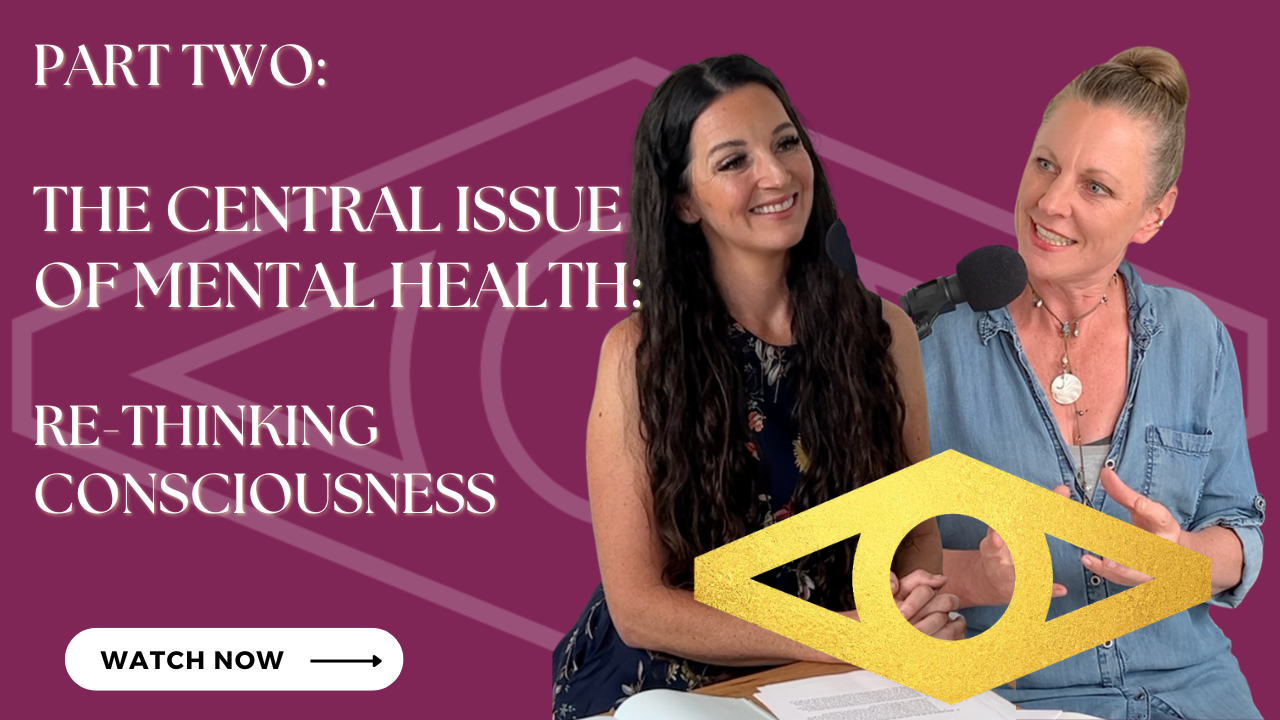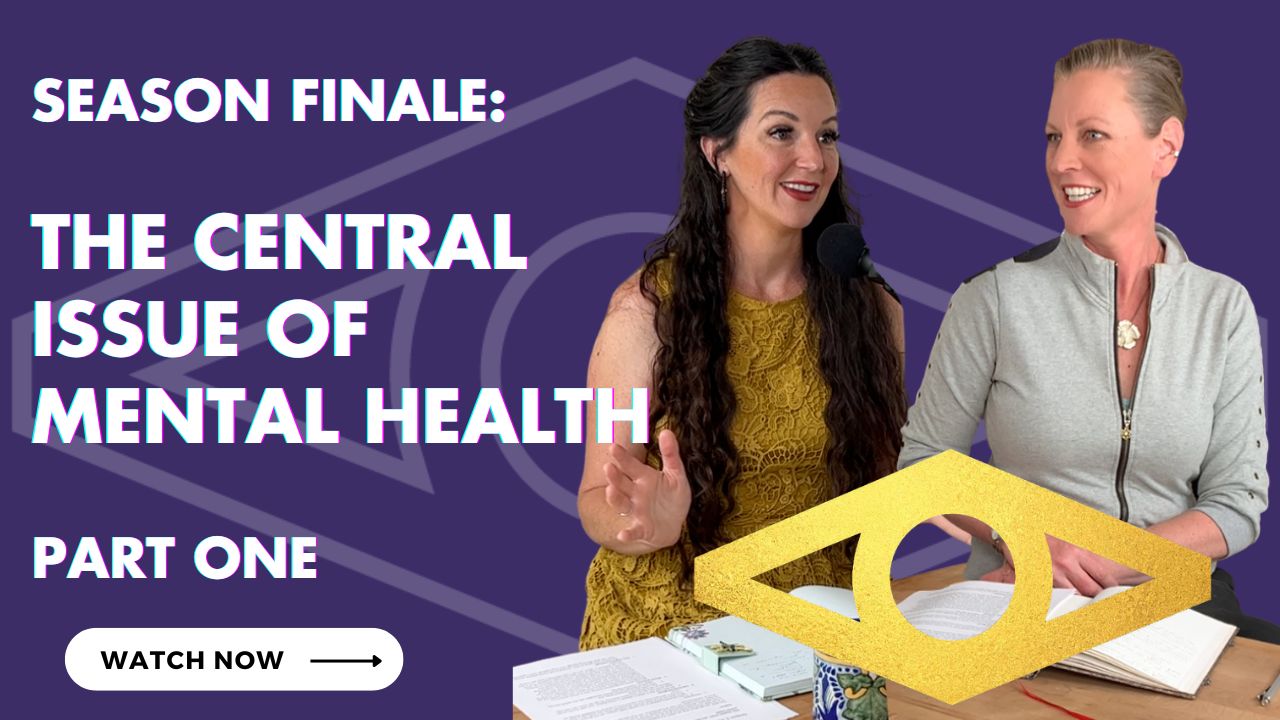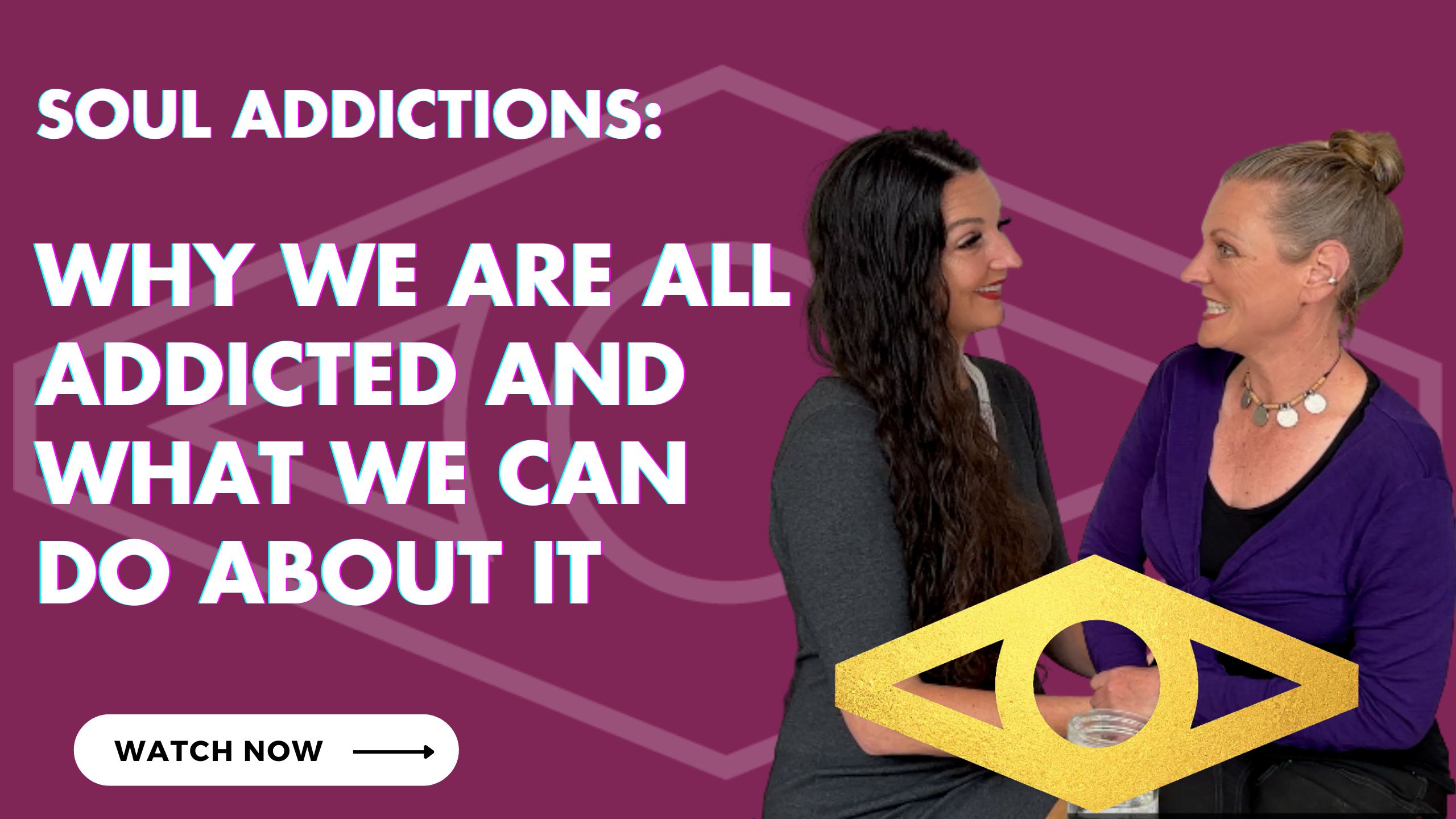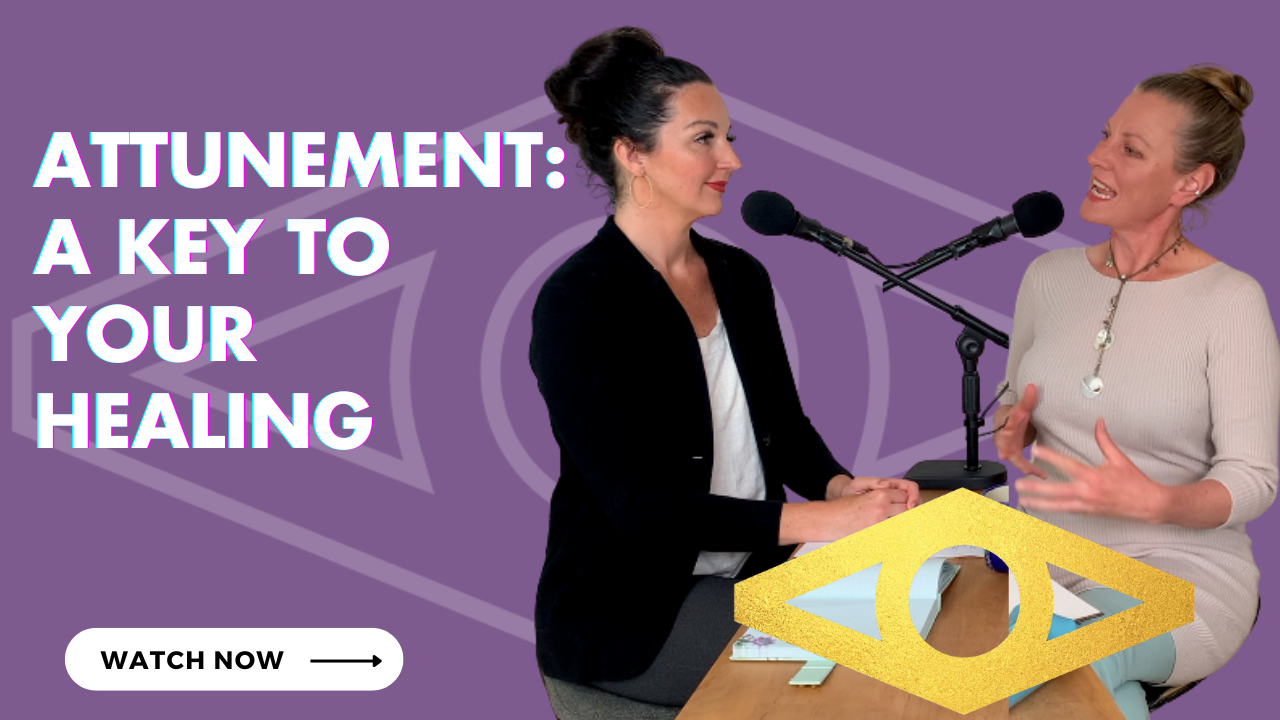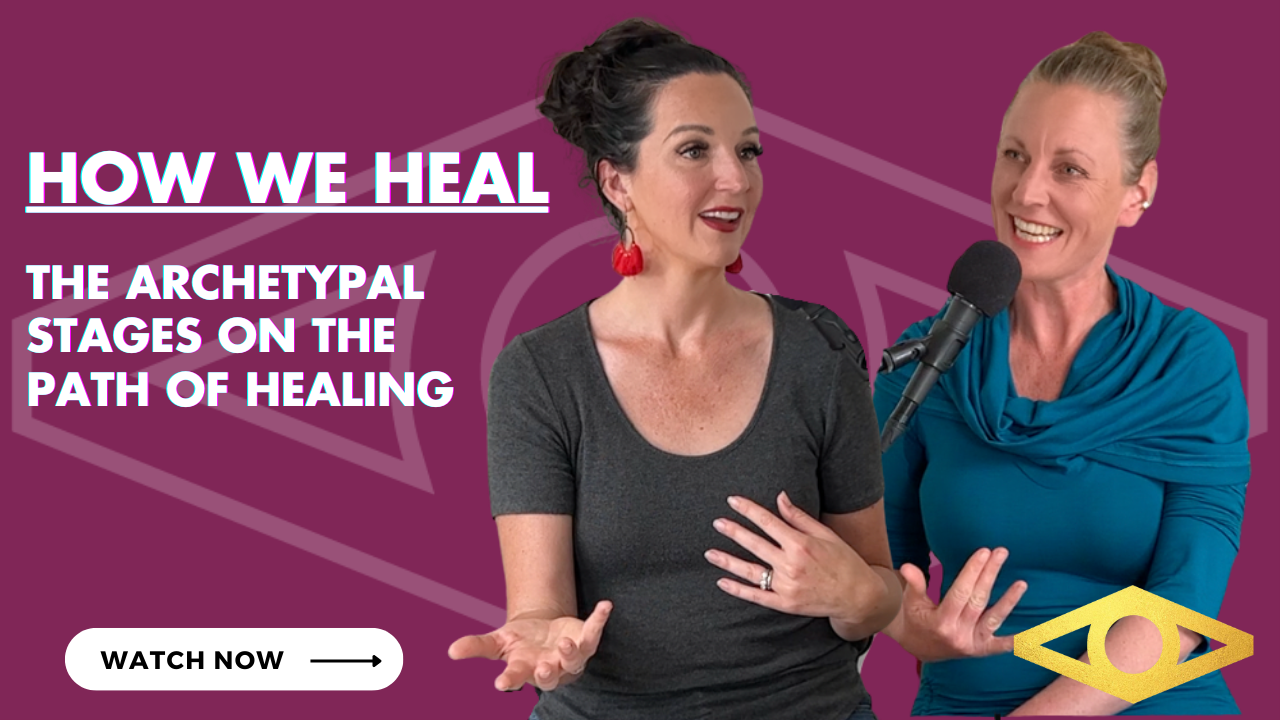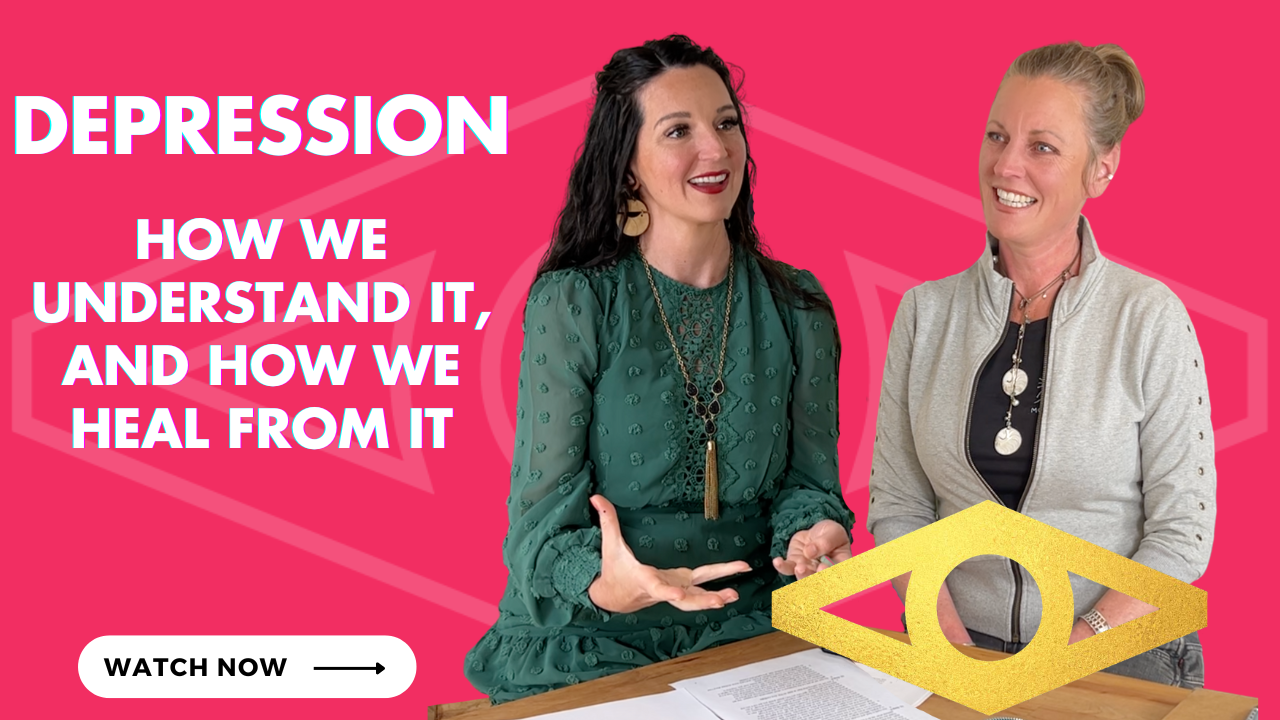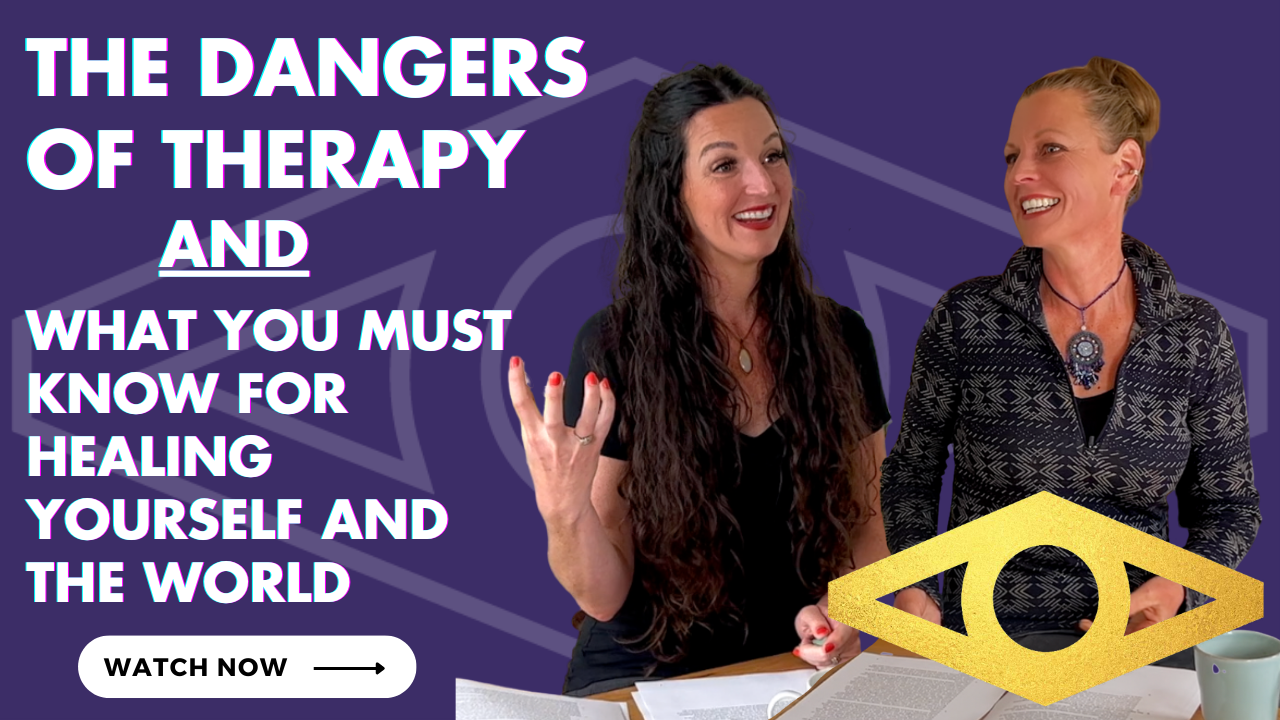

Season Two: The Art of Mental Health
In this season the Magenta team come back to discuss mental health and wellness. We will bring some lesser known — and some downright strange — approaches to consider and explore. We’ll draw from our own experiences with healing, and from our work helping others drawn from our research into little known fields of inner development.
We’re going to go between the phenomena we can observe about the inner life and its healing, and specific challenges such as generalized anxiety disorder, depression, trauma and PTSD.
We’ll be talking about the tools and practices that help us get to know and heal from the closed loops that mental health struggles create in our lives. We’ll bring practical concepts that might sometimes seem outrageously different from the prevailing understanding of mental health, share insights about a different way to work with common issues, and talk about the need for an anatomy of the inner life that can help guide us toward genuine and effective paths of healing — and put the power and agency to heal back in our own hands.

SEASON TWO:
Season Two, Episode 10
Part Two: The Central Issue Of Mental Health: Re-thinking Consciousness
In this season finale, the Art of Mental Health Part Two, we bring some concepts and ideas that open up whole new vistas for us in preparation for our third season: The Art of Spiritual Development. There is a common assumption that the brain is the source of consciousness, and consequently our interventions are typically about fixing the brain – either through “rewiring” or drugs or other brain-based interventions.
Instead, we’d like to propose that consciousness does not come from the brain, but that the brain is the instrument, the mirror, of consciousness. Why does this matter? Because if we detach the source of consciousness from the brain, we are forced to consider the nature of our consciousness as something other than a product of chemistry, chance, or biology.
This is very empowering actually, because then we are not slaves to our biology as we might previously have believed.
This discussion sets us up to introduce an important idea that is also a controversial topic: we need to include the light of our superconsciousness in order to heal our subconsciousness — the realm of our “finished worlds” and of the shadow — and if we don’t, mental health issues will continue to rise. Moreover, the world will fall into more and more social, political, and environmental chaos.
We introduce a new anatomy of consciousness that can help us better understand the nature of healing, and also help us design better interventions, methods, and tools for healing our inner worlds.
Season Two, Episode 9
The Central Issue Of Mental Health (Part 1)
This week, we talk about what we called “the finished world creations of our mind” and why that is at the heart of what we experience in mental health challenges.
In this part one of two concluding episodes to our mental health season, we are going to talk about what lies at the heart of inner development when you really boil it down. And that is getting to know and transforming or healing the finished worlds we create.
The addictive, compulsive nature of the finished world is what we’re up against when it comes to mental health/mental illness. No wonder we have such difficulty healing ourselves! We think it worth laying all this out so we can understand the forces that are actually going on in our soul life, why mental illness can seem so pathological, and why society tries to approach it in a medically informed way. The stakes are very high as we all know.
In this part one, we begin with laying out our definition of what we call the finished world creations, and in part 2 we will dig deeper into the implications, which include studying the spiritual nature of these types of creations and how they play out in our lives. This is essential to understand so we can adjust accordingly our approaches to healing and transformation.
Season Two, Episode 8
Why we are all addicted and what we can do about it
In this episode we get into an important subject in our work in Magenta: addiction. However we don’t talk about the much more common types of chemical addictions and substance abuse, nor do we get into other types of addiction such as to porn, adrenaline, shopping, and other examples of non-chemical-based addictions. Instead, we talk about a little known phenomenon of the soul where we become addicted to the ways we see things, the conclusions we draw, and the beliefs we hold about ourselves and the world that come from a wounded place.
Not in ALL things are we addicted; we mean something like having a hair trigger toward rage, or easily succumbing to depressive-style emotions, or tending to get easily offended. These are deeply entrenched habits where we would rather fight to the death than let them go. We usually have strategies that are firmly in place to act out on these addictions, such as flying off the handle around certain triggers, or dissociating when confronted with something that triggers our shame, or protective mechanisms we use for avoidance, defense, or to cope.
Soul addiction is central to Magenta’s lexicon, and we think it needs to be brought into more awareness because it has a big implications on the path of healing and emancipation from soul wounds.
Season Two, Episode 7
How to attune to your inner life and why it matters
In this episode, we delve into the topic of inner development and explore what it really means. As a school for inner development, Magenta believes that it's important to clarify this concept because understanding the terrain of our inner life and its development can make any intervention towards healing and transformation more powerful and effective.
Our consciousness is key to the healing process, and having a better understanding of the nature of our inner life can help us achieve transformation.
We discuss the three main aspects that make up our soul and inner life: our thinking or mind, our feelings and emotions, and our behaviors and the impulses that drive them. Through numerous examples, we lay out the terrain of the inner world in a simple and easy-to-understand way.
We hope that this episode will inspire listeners to explore and engage in the important process of inner development for personal growth and transformation.
Season Two, Episode 6
Before You Do Inner Work, You Must Know This
In this episode, we delve into the topic of inner development and explore what it really means. As a school for inner development, Magenta believes that it's important to clarify this concept because understanding the terrain of our inner life and its development can make any intervention towards healing and transformation more powerful and effective.
Our consciousness is key to the healing process, and having a better understanding of the nature of our inner life can help us achieve transformation.
We discuss the three main aspects that make up our soul and inner life: our thinking or mind, our feelings and emotions, and our behaviors and the impulses that drive them. Through numerous examples, we lay out the terrain of the inner world in a simple and easy-to-understand way.
We hope that this episode will inspire listeners to explore and engage in the important process of inner development for personal growth and transformation.
Season Two, Episode 5
How We Heal: the Archetypal Stages on The Path of Healing
In this episode, we get into the alchemy of healing our soul wounds. We explain the four archetypal stages of healing we go through when we put the work in to heal and overcome all that keeps us stuck, cycling, disempowered, and in pain.
If we understand what those archetypal phases are, then we have a navigational tool for where we need to go, and what healing actually entails. We’ve got to have some kind of ability to read the terrain, or read the stars, on our path of healing.
Often, we assess ourselves and look at what we expect to have happen from a place of wound - but we don’t know it. And thus our expectations for outcomes are very low, or fatalistic, or wrong in some other way. For instance, we analyse what is wrong with us and because we’re looking at ourselves from a place of wound and weakness that is all we can see.
The four archetypal stages on the path of healing can help us know where we need to go, what needs to happen next, and this knowledge can help us learn when we are projecting.
Season Two, Episode 4
Depression: how we understand it and how we heal it
In this episode we do a deep dive into depression, exploring it in our typical unconventional style. We get personal with Louisa sharing her story of healing from dysthymia (a mild but chronic form of depression). And finally we lay out the path that Louisa used to heal herself.
We also cover the two main aspects of depression: how depression comes about via our creation of a “finished world” and then how depression is sustained via the “being nature” of depression that takes on a life of its own, and can, at times, take over. We explain these mysterious-sounding concepts in more detail.
Lastly, we get into the 7 main practices that Louisa used on her path of healing. We have found each of these aspects of healing to be essential on our own personal paths. In what order or how much of each is needed may vary from person to person. We are not presenting this as a prescription because we ourselves are not therapists or medical professionals; we are sharing our hard-earned first-hand knowledge from our own healing journeys. We see the healing journey as more of an art-form than a science, hence our season’s title: The Art of Mental Health.
These steps represent a very unusual approach to healing; we depart pretty radically from conventional ideas about what it takes to heal from depression and bring some fresh new insights to the topic.
Season Two, Episode 3
The DANGERS of therapy and what you must know for healing yourself and the world
In this episode we’re going to talk about the biggest danger in conventional approaches to inner work and therapy. We get into three main areas in conventional therapy practice that are problematic, and what we should consider instead.
We also get into an aspect of our nature that is completely spiritual, and in our age of reductionist materialism this is going to be very controversial for some people. We are going to be dismissed and ignored for saying things that don’t have any traction yet in conventional culture, science or medicine — except for the fact that for most of the existence of humanity our spiritual nature was so well established that it was taken for granted, and it's only in this short time period in the whole of humanity’s evolutionary journey that we are so completely cut off from our true nature. We’re going to dive into the “I” or higher self and that it’s the only force in the universe that truly heals.
We touch on why if we continue to deny the existence of our higher self and its function in our healing and further growth we will see more chaos and disaster playing out in the near future, and what each of us can do to contribute to a future we would prefer to see.
Season Two, Episode 2
How To Heal From Anxiety
Anxiety. It’s a huge issue, especially for young people. This week Louisa and Rachel dissect the phenomena of anxiety and where it originates. Whether you suffer from occasional anxious states or full-blown general anxiety disorder, you may find some of the information shared here helpful.
We discuss the nature of thinking, and outline how we create a mental picture that, coupled with accompanying emotions, forms a finished product that is extremely difficult to shift.
We get into why this is the case, and explain the compulsive, persistent nature of the powerful combination that mental pictures and emotions create.
Fortunately, there is a way to intervene in this process and liberate yourself from the chains of anxiety. It requires the intervention of the higher self and our power of cognition. We detail how that works and lay out the process of intervention.
We also go into how parenting and modern education contribute to the anxiety epidemic. We also discuss other interventions that can be helpful and supportive for your healing journey.
Season Two, Episode 1
Four places to intervene in mental health that are often ignored
In this first episode of Season Two: The Art of Mental Health, we describe in detail what a holistic human being REALLY is. We discuss why this matters and what society excludes in most, if not all, discussions about mental health.
We get into the 4 main aspects of the holistic human being, and that we are so much more than just a physical body. We also talk about how each domain influences and effects the others, and why in our healing interventions we must include an understanding of each domain, otherwise our interventions will likely be insufficient.
We also talk about where most of the drama of life takes place, the terrain of the “soul”, and how that impacts everything else, including our physical health. We continue to discuss from yet another angle, the reality and necessity of the higher “I” or self as our own best healer in issues of mental health. This episode is a further build on discussions about the anatomy of the human being that we began in season one.
explore other seasons:



